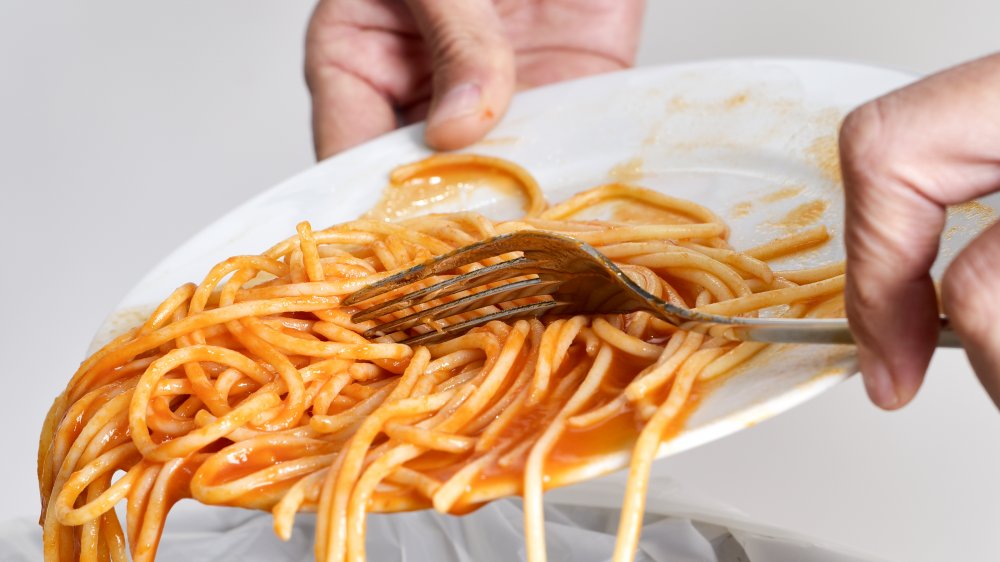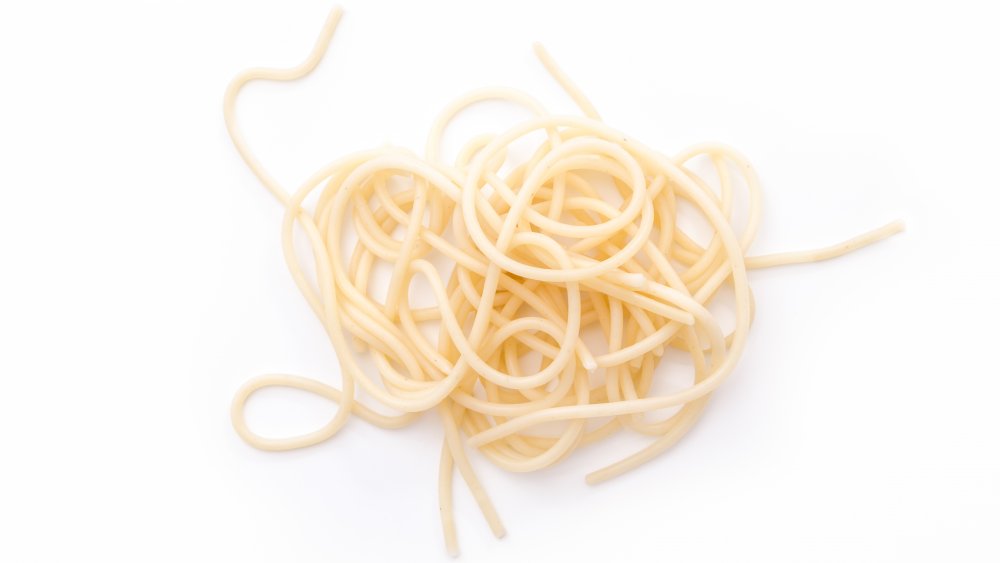You Should Never Dump Pasta Down The Garbage Disposal. Here's Why
If you are an avid pasta maker, then you likely already know there are tons of rules when it comes to getting it right. Everything from how much you season the water with salt to when you first stir in the pasta matters. Don't forget that the water must already be boiling when you drop the pasta in, and never throw that water out until the pasta has been properly dressed with sauce or toppings (via Eat This, Not That!).
Well, it turns out there is one more rule you might not have considered as a part of your pasta-eating experience. You should never throw leftover pasta down the kitchen sink garbage disposal. First of all, you shouldn't have any pasta leftover if you're properly motivated. But more importantly, the starchy pasta can have a less than wonderful effect on your drain that could even lead to repairs being necessary.
What pasta does to your drain
When pasta gets wet, it expands — even after it has been cooked and dumped down the kitchen sink or the garbage disposal. That means the pasta can grow inside the sink as it comes in contact with water and clog everything up. As the pasta expands, it also becomes too much for disposal blades to handle. So, instead of cutting up the pasta, the blades just get stuck (via Mike Diamond Services).
According to Eat This, Not That!, expanded pasta can also block the disposal trap inside the sink, too. It's definitely easier and safer to throw leftover pasta in the trash can instead. Otherwise, you'll have a much bigger problem to deal with.
No one wants to have to plunge the sink, pour boiling water down it, or dissolve a clog with baking soda, especially if the problem could have been avoided in the first place — and tossing your pasta out the right way is one way to ensure you won't have to.

